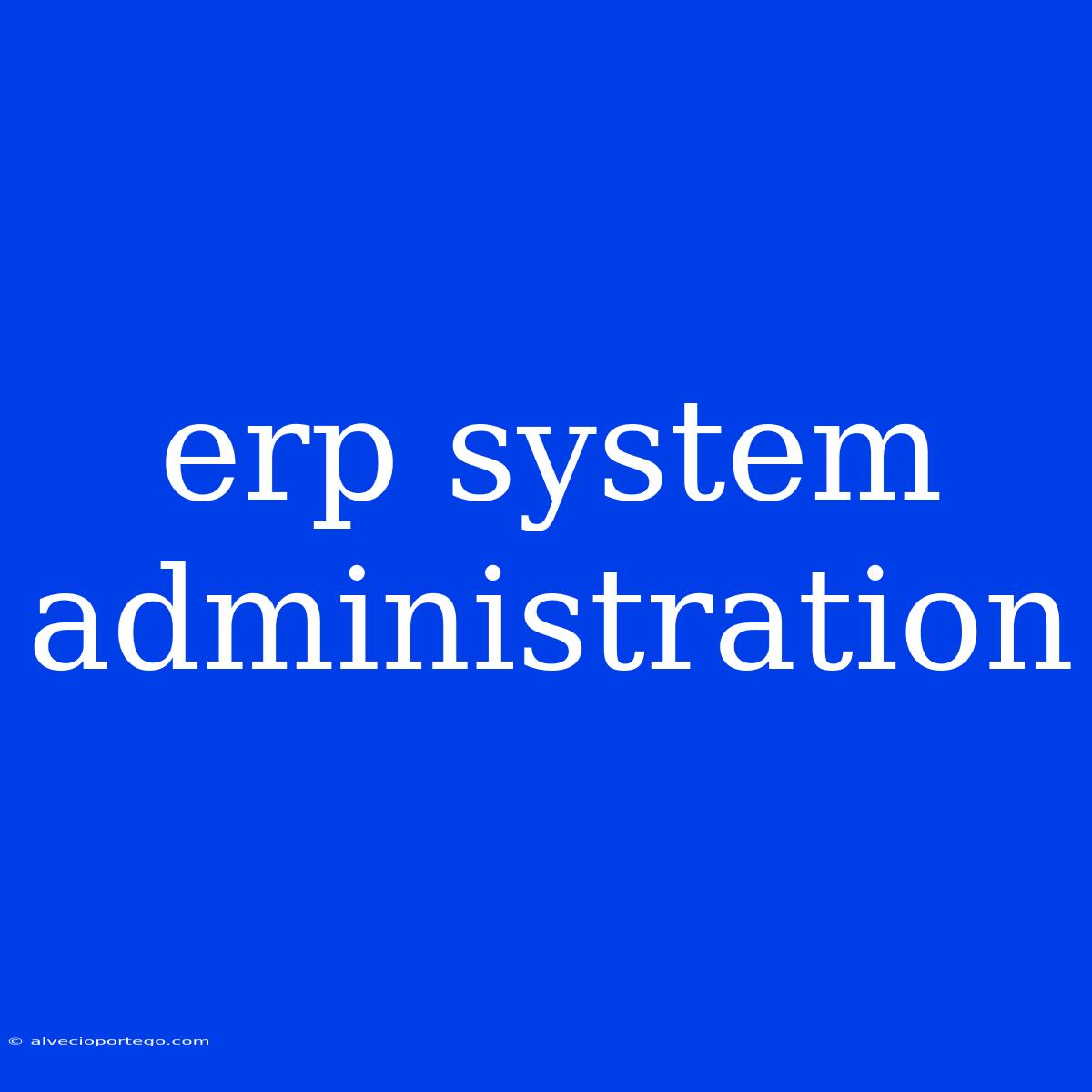ERP System Administration: A Guide to Keeping Your Business Running Smoothly
Enterprise Resource Planning (ERP) systems are the backbone of modern businesses, integrating crucial processes across departments. To ensure seamless operations and maximize return on investment, effective ERP system administration is essential. This article delves into the multifaceted role of an ERP administrator, outlining their responsibilities, required skills, and the importance of continuous learning.
What Does an ERP System Administrator Do?
ERP system administration encompasses a wide range of tasks, including:
- System Setup and Configuration: Administrators are responsible for configuring the system to meet the specific needs of the organization, including customizing workflows, user roles, and data access permissions.
- Data Management: Ensuring data integrity, accuracy, and security is paramount. This includes tasks like data migration, backup and recovery, and data cleansing.
- User Management: Managing user accounts, access privileges, and security settings to ensure appropriate user access to the system.
- System Monitoring and Performance Optimization: Identifying and resolving system performance issues, optimizing system settings for efficiency, and monitoring system health for potential vulnerabilities.
- Troubleshooting and Problem Solving: Diagnosing and resolving system errors and issues, including application bugs, data inconsistencies, and integration problems.
- Security Management: Implementing security measures to safeguard the system and data from unauthorized access, cyber threats, and data breaches.
- Software Updates and Patch Management: Staying current with software updates and security patches to ensure the system is always secure and up-to-date.
- User Training and Support: Providing training to users on the ERP system's functionality, resolving user queries, and offering ongoing technical support.
- Process Improvement and Optimization: Identifying areas for improvement within the ERP system and recommending process changes to enhance efficiency and productivity.
Skills and Qualities of an Effective ERP Administrator
A successful ERP administrator needs a combination of technical and soft skills:
-
Technical Skills:
- Strong understanding of ERP systems: Familiarity with the chosen ERP platform (e.g., SAP, Oracle, Microsoft Dynamics) and its architecture.
- Database Management: Expertise in database administration, including SQL queries, data normalization, and data security.
- Networking and Security: Understanding network infrastructure, security protocols, and best practices for data protection.
- Scripting and Automation: Knowledge of scripting languages (e.g., Python, PowerShell) for automating tasks and system maintenance.
- Problem-solving skills: A keen eye for detail and the ability to analyze complex issues and implement effective solutions.
-
Soft Skills:
- Communication skills: Ability to communicate effectively with both technical and non-technical users.
- Collaboration and teamwork: Collaborating effectively with different departments to understand their needs and resolve issues.
- Organizational skills: Staying organized, prioritizing tasks, and managing multiple projects simultaneously.
- Adaptability and willingness to learn: ERP systems are constantly evolving, so a willingness to stay updated with new features and technologies is crucial.
The Importance of Continuous Learning for ERP Administrators
The ERP landscape is dynamic, with new features, updates, and functionalities constantly being introduced. Continual learning is essential for ERP administrators to stay ahead of the curve and ensure their skills remain relevant.
Here are some ways to foster continuous learning:
- Attend industry conferences and workshops.
- Participate in online training courses and certification programs.
- Read industry publications and blogs.
- Join online communities and forums to connect with other ERP professionals.
- Stay updated with new releases and updates for your chosen ERP platform.
By embracing continuous learning, ERP administrators can ensure they are equipped to manage complex systems, optimize processes, and drive business growth.
Conclusion
ERP system administration is a crucial function for any organization relying on ERP for its core operations. Effective administrators play a vital role in ensuring system stability, security, and optimal performance, ultimately contributing to overall business success. By mastering technical skills, developing strong soft skills, and embracing continuous learning, ERP administrators can become valuable assets in any organization.

